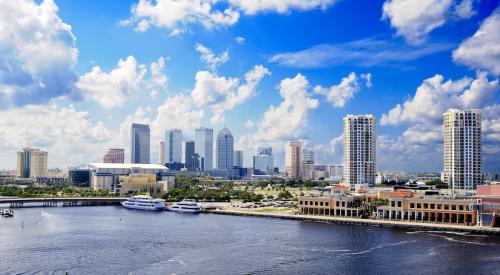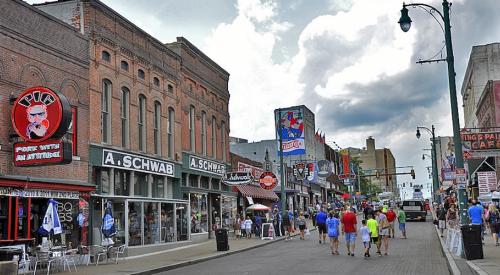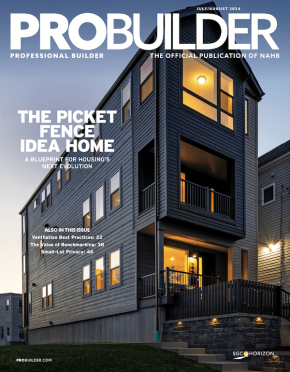Move over, Silicon Valley. Kansas City, Kansas, may become the next hot tech hub, according to Zillow. Focusing on housing affordability, how hot the market is, demographics, tech availability, and livability, Zillow analyzed 42 large metro areas to figure out the best places for tech companies to lay roots. And though California boasts some of the most traditionally strong tech markets, more affordable cities with robust labor market potential may be the future—sky-high rent in the Bay Area is making business there crushingly expensive, and Kansas is looking more and more desirable. Good news for builders in these future tech-heavy cities: Whenever and wherever tech booms, housing is in high demand.
Widely recognized tech hubs including the San Francisco Bay Area and Seattle are no longer the obvious spots for large tech companies to expand and/or for new startups to set up shop. Rapid housing cost growth in these areas and a saturation of firms competing over limited pools of tech talent may instead push tech companies to shift their gazes elsewhere.
Zillow analyzed market conditions in 42 large metro areas nationwide, focusing on five factors that could suggest a market ripe for tech growth:
- housing affordability
- market ‘hotness’ – factors indicating a market has the potential to attract people
- demographics and labor market dynamics – factors that indicate a robust local economy
- tech availability – factors that indicate a market has less competition for talent
- livability – factors that highlight the appeal of living in a given market
Surprisingly, the markets offering the best balance between these five dimensions are not necessarily those that may be top-of-mind when asked to identify tech hot spots. Markets smack in the middle of the so-called “Silicon Prairie” top the list of those that may appeal to growing tech companies, followed by markets in the Midwest and the South that have the ability to draw talent and the tech companies looking to hire them. Eroding affordability and relatively lackluster quality of life put the nation’s more-stereotypical tech hubs at or near the bottom of the rankings.
Oklahoma City and Kansas City lead the list of markets that may be appealing to tech initiatives. These cities rank high in housing affordability: In each, those earning the area’s median incomes should expect to spend a comparatively smaller share of their income on housing. They also earn high marks for livability (Kansas City tops the list in this category) and the local availability of workers with in-demand tech skills.
A number of southern markets, including Jacksonville, San Antonio and Austin, as well as Cincinnati, rank among the top 10 in terms of market hotness. Robust rent and/or home value growth, as well as more people from outside the areas looking in instead of people already there looking out, suggest these places are poised for continued growth and an influx of people.
Traditional tech hubs – along with Chicago, not typically considered a tech hotspot – occupied all of the bottom five slots on the ranking. Lack of affordability is a major, unifying concern for tech hubs: Los Angeles and the Bay Area have the worst affordability rankings of all markets examined in this study.
Below, we’ve highlighted some standouts from each of the five dimensions we examined.












